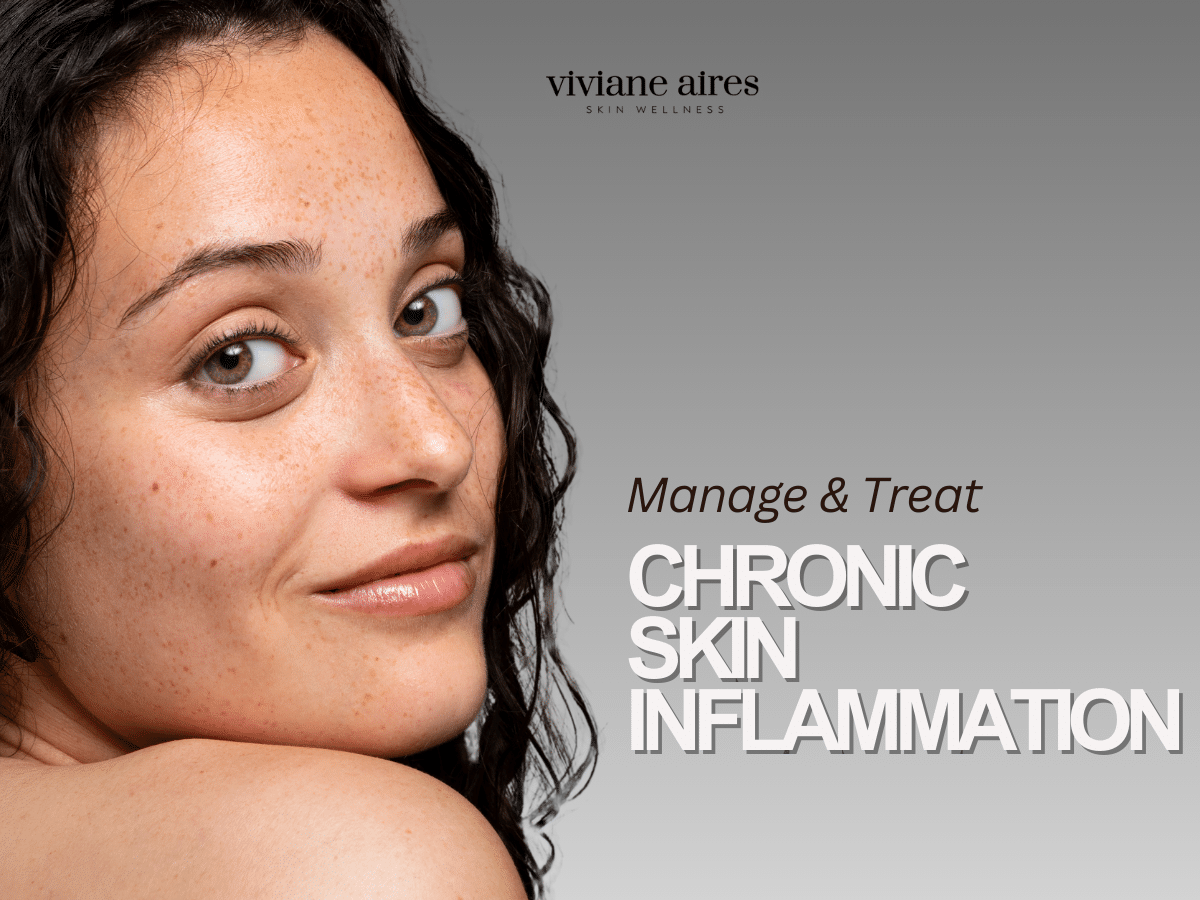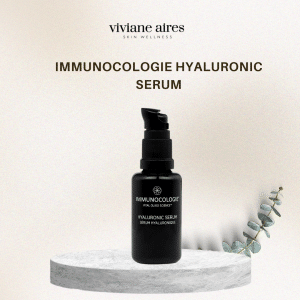
Finding Relief: Managing Chronic Skin Inflammation
Have you ever noticed how your skin sometimes reflects what’s going on inside your body? If you’ve ever dealt with a chronic condition like eczema, psoriasis, lupus, or PCOS, you probably know this all too well. Our skin isn’t just a barrier between us and the world; it’s a living, breathing canvas that can show signs of what’s happening beneath the surface.
Think of it like this: when your body’s dealing with a long-term condition, your skin often plays a starring role in the story. It can become dry, red, or even change color, making it hard to ignore the connection between your internal health and what you see in the mirror. Whether it’s the itchiness of eczema, the scaly patches of psoriasis, the telltale rash of lupus, or the stubborn acne from PCOS, these conditions can have a major impact on your skin and how you feel about it.
Let’s explore how these chronic conditions affect your skin and skin tone—and what you can do to take care of it.
Understanding Eczema
Eczema, or atopic dermatitis, is a chronic inflammatory skin condition characterized by dry, itchy, and inflamed skin. It’s a common condition that affects people of all ages but often begins in childhood.
- Effects on Skin and Skin Tone: Inflammation and Redness: Eczema causes inflammation, which leads to redness and swelling. This can give the skin a blotchy appearance, with areas of intense redness contrasting with the surrounding skin tone.
- Dryness and Scaling: The skin’s barrier function is compromised in eczema, leading to excessive dryness and flaking. This can cause the skin to appear dull and uneven in tone.
Hyperpigmentation and Hypopigmentation: Prolonged inflammation can result in post-inflammatory hyperpigmentation (dark spots) or hypopigmentation (light spots), especially in individuals with darker skin tones. These changes can persist even after the eczema flare-up has subsided.
Psoriasis: The Silvery Scales:
Psoriasis is an autoimmune condition that accelerates the growth cycle of skin cells, leading to thick, scaly patches of skin. It’s a lifelong condition that can have periods of remission and flare-ups.
- Effects on Skin and Skin Tone: Plaques and Scaling: Psoriasis is characterized by the development of thick, silvery scales on the skin, often accompanied by redness. These plaques can vary in size and appear on various parts of the body, causing a stark contrast with the surrounding skin tone.
- Discoloration: The areas affected by psoriasis can appear red or pink in lighter skin tones and purple, brown, or gray in darker skin tones. After a flare-up, the skin may also be left with post-inflammatory hyperpigmentation or hypopigmentation, similar to eczema.
- Texture Changes: The thickening of the skin due to scaling alters the texture, often making the skin appear rough and uneven.
Lupus: The Butterfly Rash and Beyond
Lupus is an autoimmune disease where the immune system attacks healthy tissues, including the skin. One of the most recognizable symptoms of lupus is a facial rash that extends across the cheeks and nose, often called a “butterfly rash.”
- Effects on Skin and Skin Tone:
Butterfly Rash: This rash is typically red or pink and can be more pronounced in lighter skin tones. In darker skin tones, it may present as a darker, hyperpigmented area. The rash is often triggered or worsened by sun exposure. - Discoid Lesions: Lupus can cause discoid lesions, which are thick, scaly patches of skin that can lead to permanent scarring and changes in skin color. These lesions can cause the skin to become lighter or darker, depending on the individual’s skin tone.
- Photosensitivity: People with lupus are often photosensitive, meaning exposure to sunlight can cause rashes, burns, and other skin reactions, leading to uneven skin tone and texture.
4. Polycystic Ovary Syndrome (PCOS): Hormonal Havoc
PCOS is a hormonal disorder affecting women of reproductive age, characterized by irregular menstrual cycles, excess androgen levels, and polycystic ovaries. It often has dermatological manifestations due to hormonal imbalances.
- Effects on Skin and Skin Tone: Acne and Breakouts: The excess androgens in PCOS can lead to increased sebum production, causing acne that can leave behind dark spots or hyperpigmentation, especially in those with darker skin tones.
- Hirsutism: PCOS can cause excessive hair growth on the face and body, which may result in irritation or discoloration of the skin, especially in areas where hair removal techniques are frequently used.
- Acanthosis Nigricans: This condition, often associated with insulin resistance in PCOS, results in dark, velvety patches of skin, usually in body folds like the neck, armpits, and groin. This discoloration can be quite pronounced, especially in individuals with darker skin tones.
Using Products with Right Ingredients:
Start with a broad-spectrum sunscreen (SPF 30 or higher) containing physical blockers like zinc oxide or titanium dioxide to shield your skin from harmful UVA and UVB rays, which can trigger flare-ups. You can use Jan Marini Physical Protectant Tinted SPF 45 which is recommended by Viviane Aires for its protection against premature skin aging.
Incorporating niacinamide (Vitamin B3) into your routine is beneficial as it helps reduce redness, strengthen the skin barrier, and provides anti-inflammatory benefits. Use Circadia Veil Brighter, which will help you in brightening and lightening of your skin as it has niacin amide extracts in it.

Antioxidants, such as Vitamin E and green tea extract, are excellent for protecting the skin from environmental stressors and promoting overall skin health. Lastly, hyaluronic acid is a must-have for maintaining hydration, as it helps plump the skin and lock in moisture, ensuring your skin stays supple and resilient. Use Immunocologie Hyaluronic Serum which helps in hydration, soothing, and plumping of skin.

Living with a chronic medical condition often means navigating a complex relationship with your skin. These conditions can lead to visible changes in skin tone, texture, and overall appearance, which can impact self-esteem and quality of life. It’s essential to work closely with healthcare providers to manage both the underlying condition and its dermatological manifestations.
In addition to medical treatments, adopting a gentle skincare routine tailored to your skin’s needs, protecting your skin from the sun, and staying hydrated can help mitigate some of the effects on your skin and maintain a healthier, more even complexion.
Remember, your skin tells your story, and with the right care, it can continue to reflect your strength and resilience.
